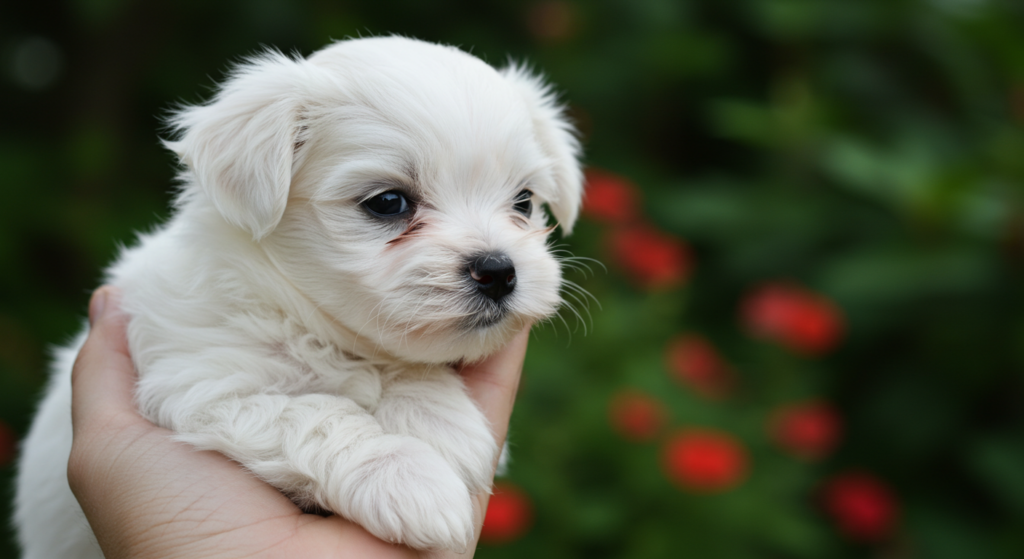Introduction:
Embarking on the journey to find a small canine companion that stays delightfully diminutive is an exciting prospect. These pint-sized pups pack an immense amount of love, personality, and joy into a compact frame, making them ideal for a variety of living situations. This comprehensive guide will navigate you through the process of selecting the perfect tiny dog that will capture your heart and fit seamlessly into your life.

Table of Contents
- Why a Small Dog? The Allure of the Compact Canine
- Key Considerations Before You Choose
- A Closer Look at Popular Pint-Sized Breeds
- Temperament and Personality: Finding Your Perfect Match
- Grooming and Health: The Responsibilities of Tiny Dog Ownership
- Conclusion: A Lifetime of Love in a Small Package
- Frequently Asked Questions
Why a Small Dog? The Allure of the Compact Canine
The appeal of a small dog that remains tiny is undeniable. Their compact size makes them well-suited for apartment living and can often translate to lower food and supply costs. Many find their smaller stature less intimidating, and their portability allows them to be included in more of life’s adventures. From their endearing antics to their unwavering loyalty, tiny dogs have a unique way of forging deep and lasting bonds with their human companions.
Key Considerations Before You Choose
Before you are swayed by an adorable face, it is crucial to assess your lifestyle and ability to care for a small dog.
- Living Space: While small dogs are adaptable to various living situations, their energy levels can vary significantly. An active breed will still require ample space to play and explore, even if they are small in size.
- Time Commitment: All dogs, regardless of size, require a significant investment of time for training, exercise, and affection. Consider your daily schedule and whether you can provide the necessary attention your new companion will need.
- Financial Responsibility: The initial adoption or purchase price is just the beginning. Factor in the ongoing costs of high-quality food, regular veterinary check-ups, grooming, and potential emergency medical expenses.
- Household Dynamics: If you have children or other pets, it is vital to choose a breed known for its compatibility and to properly socialize your new dog to ensure a harmonious home environment.
A Closer Look at Popular Pint-Sized Breeds
Several breeds are renowned for their perpetually small stature. Here is a glimpse into some of the most popular choices:
| Breed | Average Weight | Temperament | Grooming Needs |
| Chihuahua | Under 6 lbs | Sassy, loyal, and confident | Low |
| Pomeranian | 3-7 lbs | Lively, intelligent, and bold | Moderate to High |
| Yorkshire Terrier | Around 7 lbs | Energetic, feisty, and affectionate | High |
| Maltese | Under 7 lbs | Gentle, playful, and charming | High |
| Shih Tzu | 9-16 lbs | Affectionate, outgoing, and playful | High |
| Toy Poodle | 4-6 lbs | Intelligent, proud, and trainable | High |
| Cavalier King Charles Spaniel | 13-18 lbs | Affectionate, gentle, and eager to please | Moderate |
| Pug | 14-18 lbs | Charming, mischievous, and loving | Moderate |
Exporter vers Sheets
This table offers a general overview. It’s important to research each breed thoroughly to understand their specific needs and characteristics.
Temperament and Personality: Finding Your Perfect Match
Beyond their adorable appearance, the temperament of a small dog is a critical factor in ensuring a successful and fulfilling relationship. Some breeds are known for their bubbly and outgoing personalities, while others are more reserved and independent. Consider what you are looking for in a canine companion. Do you envision a playful and energetic partner for outdoor adventures, or a calm and cuddly lap dog to share quiet evenings with? Researching the inherent personality traits of different breeds will help you find a dog whose temperament aligns with your own.
Grooming and Health: The Responsibilities of Tiny Dog Ownership
The grooming needs of small dogs can vary dramatically. Breeds with long, flowing coats, such as the Yorkshire Terrier and Maltese, will require daily brushing to prevent mats and tangles, as well as regular professional grooming. Other breeds with shorter coats, like the Chihuahua, have more minimal grooming requirements.
It is also essential to be aware of the common health issues that can affect small breeds. Dental problems are prevalent due to their small mouths, so regular teeth brushing and veterinary dental cleanings are crucial. Other potential concerns include patellar luxation (dislocated kneecap), tracheal collapse, and certain heart conditions. Choosing a reputable breeder who conducts health screenings on their breeding dogs can help minimize the risk of hereditary conditions.
Conclusion: A Lifetime of Love in a Small Package
Choosing the perfect small dog that remains tiny is a significant decision that will bring immense joy and companionship into your life. By carefully considering your lifestyle, researching different breeds, and understanding the responsibilities of ownership, you can find a pint-sized partner who will fill your days with love, laughter, and unwavering devotion. The journey to finding your tiny canine companion is an adventure in itself, leading to a rewarding and lifelong bond.
Frequently Asked Questions
What is the smallest dog breed?
The Chihuahua is widely recognized as the smallest dog breed in the world.
Are small dogs easier to train?
A dog’s trainability is more dependent on its breed’s intelligence and eagerness to please rather than its size. All dogs require consistent and positive reinforcement training.
Are there any small dogs that don’t shed much?
Yes, breeds like the Toy Poodle, Bichon Frise, and Maltese are known for their low-shedding coats, making them a good option for individuals with allergies.
How much exercise do small dogs need?
While their exercise needs are generally less than larger breeds, small dogs still require daily walks and playtime to stay healthy and happy. The specific amount of exercise will depend on the breed’s energy level.
Can small dogs live in apartments?
Many small dog breeds are well-suited for apartment living due to their compact size. However, it is still crucial to provide them with adequate exercise and mental stimulation.
